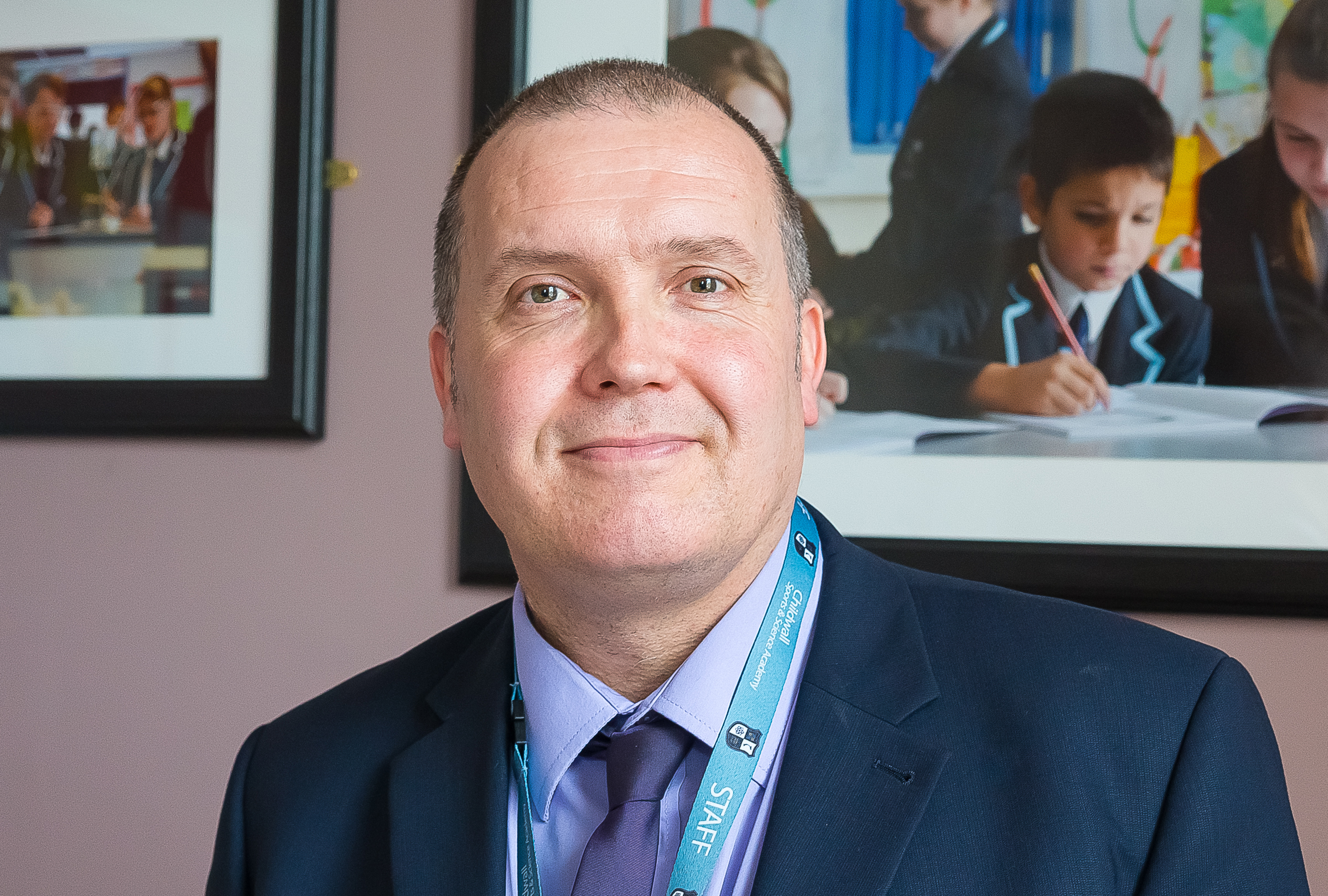James Kerfoot, Childwall Sports & Science Academy

When James Kerfoot took on the top job at Childwall Sports & Science Academy last September, he was the first new headteacher to be appointed at the school in 20 years. Having already set about making his mark though, breaking away from old routines with dramatic changes, he’s sending out a clear message that ‘Childwall is changing’.
‘Childwall is changing’ is the new “mantra” for the school, explains James, who had already been working as deputy head since 2010 at Childwall Sports & Science Academy when he took the helm, replacing long-standing headteacher Dewi Phillips.
The opportunity to work with Dewi, who he highlights was the most experienced headteacher in Liverpool at the time, along with the “warmth and vibrancy” around the academy, were among the factors originally attracting James to Childwall.
Another big draw was the city school’s position as “one of the most, if not the most, multicultural, multi-ability academies” in the area. It’s the type of school that has attracted James throughout his teaching career so far, since his first appointment as a history and PE teacher at Abbey Gate College in rural Chester.
“There was an element of being in the school in Chester where I thought ‘they don’t need me’,” recalls James, adding: “I uprooted the family and moved them to a 1,800-strong multicultural comprehensive called North Chadderton School in Oldham because I desperately wanted to, I suppose, prove myself but also because I thought those were the children who needed help the most.”
He became head of history and politics at the Oldham school, where he also trained when he first entered the teaching profession, and the position also marked the start of his rise through the leadership ranks.
When family reasons saw James move back to Chester, he landed an assistant headteacher job at New Heys in South Liverpool, which had become a national school of creativity.
“My job was just brilliant,” explains James. “It was in charge of teaching and learning and professional development for teachers, which was basically looking at every way possible of bringing creative approaches into education. I had the remit to go and see some of the most creative schools in the country, to go and see what practice was out there to try and bring it back.”
Having decided to move to a deputy headship at Childwall when New Heys was earmarked for closure and about to merge into the Enterprise South Liverpool Academy in 2010, James has carried his experience of creative practice through to his current position and is very clear about his vision for the school.
“It’s just about outstanding teaching and learning, creative teaching and learning, and staff who are prepared to take risks, enjoy themselves and bring the passion into lessons,” he explains.
Now light-heartedly comparing himself as a David Moyes to his predecessor’s Alex Ferguson, an analogy which seems fitting in a school where sport is a running theme and also for James, who has long been a football coach outside of school too, he describes taking over from such a long-serving headteacher as “daunting to be quite honest, but it’s great, it’s exciting”.
He adds: “I jokingly say David Moyes but it’s like that isn’t it? How do you change that sort of institution and change the patterns and rhythms of the school? I thought about it really hard and thought it needed to change.”
During his relatively short time at the top, James has already introduced a new uniform, new standards and a new leadership team at Childwall, with virtually all senior leaders now said to be new or in new positions.
There’s also been what James describes as a “change in language”, moving focus from the government’s drive to improve A* to C grades to simply celebrating children’s individual strengths, improvements and achievements.
He explains: “We’re not just talking about children getting Cs, we’re talking about children making better than expected progress from the start. So with some children getting a G, we need to celebrate that as well as others getting an A*. That’s a big shift for teachers and teaching to say it isn’t about, necessarily, just what the government wants, it’s about us doing the right thing for these students.
“My passionate belief is that too many schools fall into the trap of focusing on results all day every day, and if you do that you will improve the results but you’ll plateau, you’ll improve them over a one or two year period but you’ll never break through to the good and outstanding territory. If you focus on outstanding learning the results will happen.”
The headteacher’s ‘Childwall is changing’ message also expands to the community surrounding the school, with an aim to also improve the public’s perceptions. New marketing and invitations to local people to visit during open house coffee mornings are all part of the approach, as James says: “My vision is that three years from now when children are walking past the shops, rather than shopkeepers thinking ‘oh no I’m going to have loads of kids buying crisps and causing a problem’, they’re going to be saying ‘good luck in your maths exams’.
“What we’re also trying to be, and it’s an interesting tactic, is the most honest school out there. We’re saying we know we’ve got stuff we’ve got to work on. That’s great, it’s a challenge, but we’re enjoying it, and it gets staff on board.”
A theme of aspiring is also at the heart of the academy, with teachers, students and future students alike being encouraged to work hard, want to better themselves, and “research, improve and develop”.
It’s an attitude that James has taken whilst developing his own career, and as he continues to progress in his headteacher role, gradually implementing changes and improvements, he adds: “I think you have to get into every job, do it, not stretch too far too fast, do it well, try and show that you’re having impact and reflect. People say the headteacher’s job is the loneliest, hardest job in the world and maybe I’m naive but I’m genuinely loving every day.”




